How to Create Food Security
Security /səˈkyo͝orədē/ The state of being free from danger or threat.
The unthinkable has happened—a pandemic has lead to severe disruptions in the normal goods and services to which we have grown accustomed.
It’s happened once, and it’s very likely to happen again—whether due to a pandemic resurgence, a natural disaster, further economic collapse, or a simple power outage.
Will you be ready next time?
As we’ve learned, weekly trips to the grocery store and home amenities like running water and electricity could all disappear in an instant.
Pandemics, severe weather, fires, and power outages are just a few potential threats that can quickly lead to an emergency situation. Each scenario presents its own unique challenges. For example, what do you do if you find yourself without electricity, gas, running water, or even outside communication systems? Would you sit around and wait for help to arrive, or would you be ready to take action?
With a little planning, you’ll be ready to face whatever challenges come your way!
Let’s take a closer look.
Reasons to Create Food Security for Your Family and You
- To be better prepared in the event of a disaster
- To be more self-sufficient and less reliant on the system
- To preserve the harvest
- To know how your food is grown or raised
- To better understand what you are putting into your body
- To have peace of mind
Food Security Basics
Benefits of Food Security
The benefits of food security go beyond the typical cliché of the “prepper” or just being prepared in the event of a disaster. Since storing food often requires rotation of goods and food preservation, you and your family will have peace of mind knowing exactly what you are consuming. This peace of mind is especially true if you are growing a garden; raising animals; and actively canning, dehydrating, and freezing.
Planning Ahead
Planning ahead does involve a bit of work, but it doesn’t have to be a daunting task. If you haven’t already started preparing, I encourage you to start today! Starting now, planning and building little-by-little creates less stress in the long haul. At the very least, you can simply start by purchasing one extra item at each shopping trip to ensure food security.
When planning, it is important to store only things that your family likes to eat and are easily accessible should a situation arise. It is a good idea to keep a notebook or journal to keep track of the goods you have, as well as noting dates to create a regular rotation schedule.
You’ll need to bear in mind the types of food you are storing and how well they work in any given situation. Let’s take dried beans for example. Long shelf life, excellent protein and nutrition, and delicious taste. But what if you lack water? How will you eat them? This isn’t a food you can easily pop like an aspirin, so planning ahead and canning beans (or purchasing store-bought) might be a better idea, because they do not require any extra preparation. Simply pop the top and enjoy them cold!
The same would apply to dehydrated foods, such as vegetables, that need to be reconstituted. Should there be a shortage of water, they may not be as beneficial as they seem. This should not discourage you from dehydrating veggies or stocking dry beans. But, consider the accessibility of your foods in an emergency situation.
Food Storage
Whenever you are storing food, whether it be store-bought or preserved at home, there are a few things to consider. Beforehand, evaluate the safety, quality (shelf life), and quantity of what you are storing.
Safety
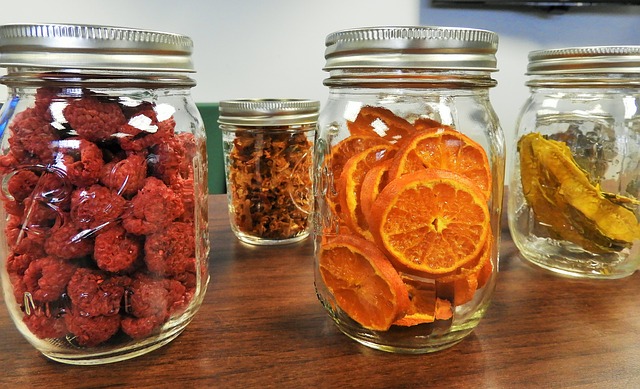
Image by CSU-Extension from Pixabay
The last thing that you want during a disaster, or even at Sunday night supper, is for somebody to contract a food-borne illness. To prevent this, do some research upfront and be diligent about your storage practices.
Storing food properly is important. It may be obvious but is definitely worth a mention. Food that lacks moisture, like dried goods or dehydrated foods, are less likely to spoil than foods that contain a lot of moisture, like canned goods. The presence of water allows for an elevated risk of food-borne illness. However, dried goods are at risk if stored improperly and moisture is allowed into the packaging.
If you are considering canning, dehydrating, fermenting, or freezing, follow the recommended guidelines.
Quality (Shelf Life)
Whether preserved at home or commercially, many stored consumables do, in fact, deteriorate with age. That is why it’s wise to create a rotation schedule. Most items will need to be rotated in and out of storage approximately every 6 to 12 months. However, this isn’t always the case.
I advise you to keep track of what you have on hand, dates packed, and recommended shelf life so you can create an ideal rotation schedule. If you’re like me, then you will be using your stored goods throughout the year and replacing them as you go.
Quantity
Are you storing too much, or too little? You don’t want to have so much food stored that it spoils. But, in the event you need food for security, you don’t want to have too little. At the very least, each person should have one meal and one quart of water per day. Decide during the planning stage how many days, weeks, or months for which you would like to be prepared. Then factor in the number of people and animals in your household. This should give you a good idea of the amount you’ll need to store for optimal food security.
Additional Ways to Create Food Security
Buy Bulk Dry Goods
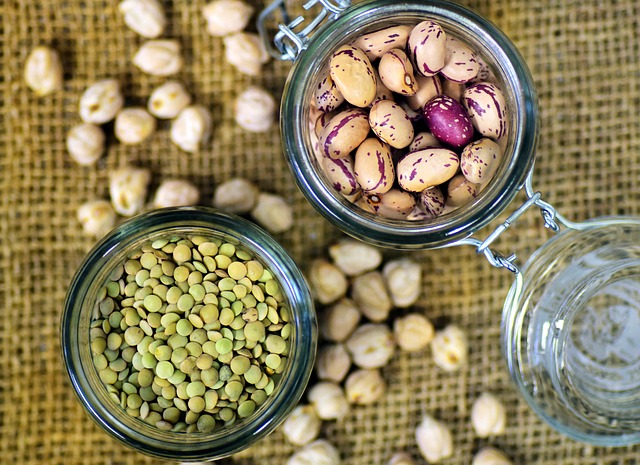
Image by Ulrike Leone from Pixabay
As we’ve discussed in this article, storing dried goods is a fantastic idea no matter how you look at it. While there are a few things mentioned above to consider, start by purchasing things like rice, oats, cereals, crackers, and dried potato products in bulk. These items often have a long shelf life and are easily rotated.
Keep in mind that things like milled grains (i.e., flour) are not ideal for long-term food storage. The milling or grinding process makes these items vulnerable to oxygen absorption, and they can quickly go rancid.
Grow Extra and Preserve the Harvest
Plant an additional row of green beans, tomatoes, or peppers to preserve. Grow extra herbs in pots to dehydrate. Plant extra root vegetables, like potatoes and carrots, in tubs or barrels for root cellaring.
You May Also Enjoy:
Growing just a little bit extra can go a long way! Last year, I planted an additional row of green beans (approx. 5–7 plants), and by canning the extra, I had garden-fresh green beans until the next growing season!
The #1 Way to Create Food Security
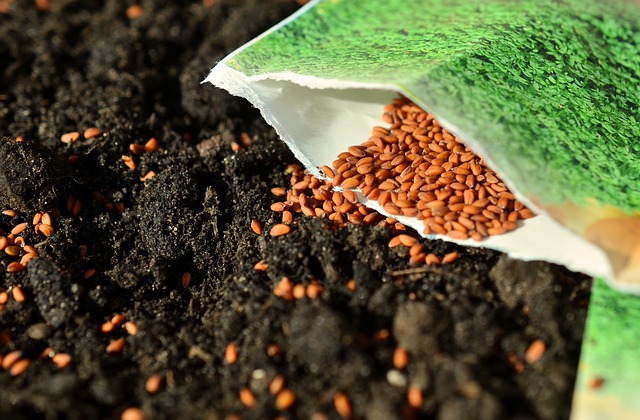
Image by congerdesign from Pixabay
Grow heirlooms and save the seeds! I cannot stress this enough, SAVE YOUR SEEDS! In my opinion, this is the #1 way to create food security. By growing heirlooms, you have the ability to save the seeds to produce new plants, over and over again, forever! Nature is amazing. A single jalapeño pepper can yield dozens of new plants! Having the knowledge and ability to grow from seeds is an invaluable skill and can make all the difference for your long-term food security.
A Few Lifesaving Things You Might Want to Have on Hand
Water. Presented with a disaster, having stored water can be a matter of life and death. It’s a smart idea to have a few gallons minimum on hand. If you’re actively canning, I encourage you to can water. Yes, can water! Often, when canning garden produce, your pressure canner won’t be full. Solve the problem by filling the empty space with quarts of water!
You May Also Enjoy:
In the event of an emergency, remember that you may be able to drain your pipes or hot water heaters to get lifesaving water.
Fuel. Make sure to always have an extra tank of propane, lighters, matches, firewood, and even gasoline on hand. In the event of a disaster, you might need a way to heat food, sterilize water, or simply keep warm!
Pet Food. If you have pets, don’t forget about them!
Utensils, Pots, Can Openers, Paper Plates and Towels, etc. Should you need to evacuate your home, you’ll want a way to prepare and serve food. Ideally, stow a bag full of these items in an easily accessible place. In the event of an evacuation, you may only have minutes to grab what you need!
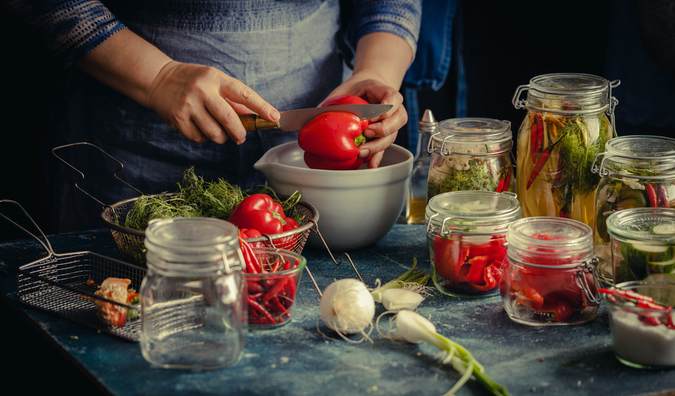
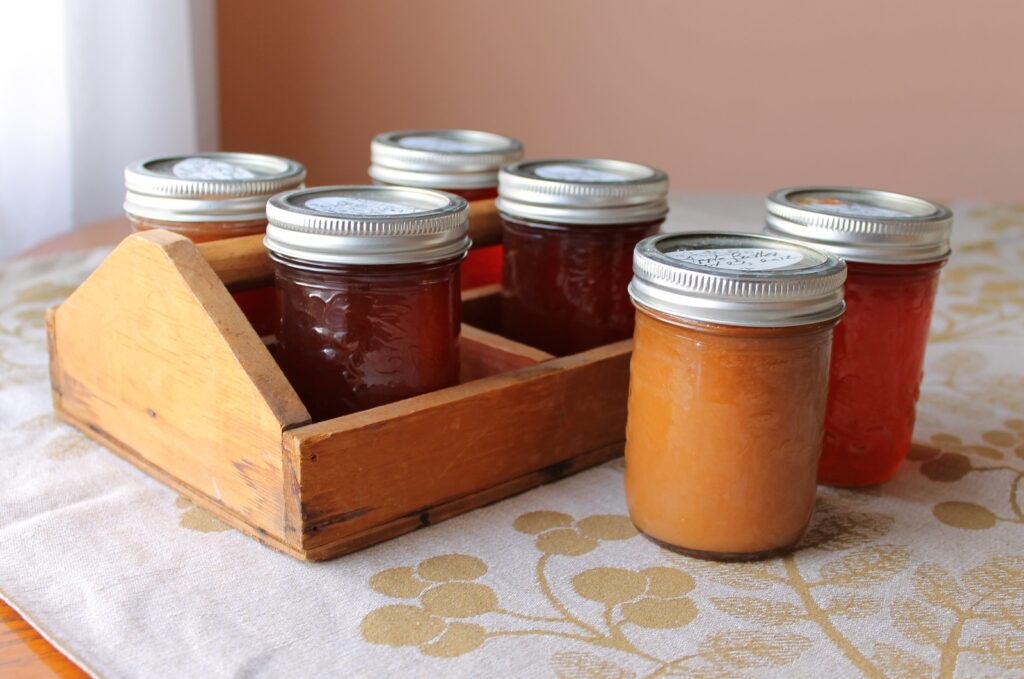







COMMENTS(1)
I was never one to prepare for emergency until I relocated from the Northeast part of the country to Houston, Texas, where I lived for approximately 15 years now. Summer 2005 Hurricane season really highlighted what happens when you don’t take care of your food security.
My number one reason for preparation would be natural disaster, namely Hurricane, but it now encompass a variety of other reasons. As an Urbanite without a yard or garden I have to think outside of the box to find solutions to a variety of challenges. Planter boxes is what I use as an alternative to a yard, its the best I can do. I incorporate a couples of AreoGarden system, commercialized hydroponic system, (salad, tomatoes, herbs) the great thing about it you can run it year round.
If you really want to learn food security go take a class or access LDS website. They will bring you up to speed. They have very knowledgeable instructors and their classes were at a minimum cost or free.
As an employee for the Health Department I get to see what happens when people don’t prepare and depend on the local government. Its an eye opener! My advice to those men with family like myself step up and take charge. As a friend ,EMT, of mine once said, ” there is nothing worst then to see a grown man cry because he didn’t take care of his family after a disaster”, Eva was dead on. That comment was burned into my memory. Good article, Ms. Reyes. I would say be flexible and creative.